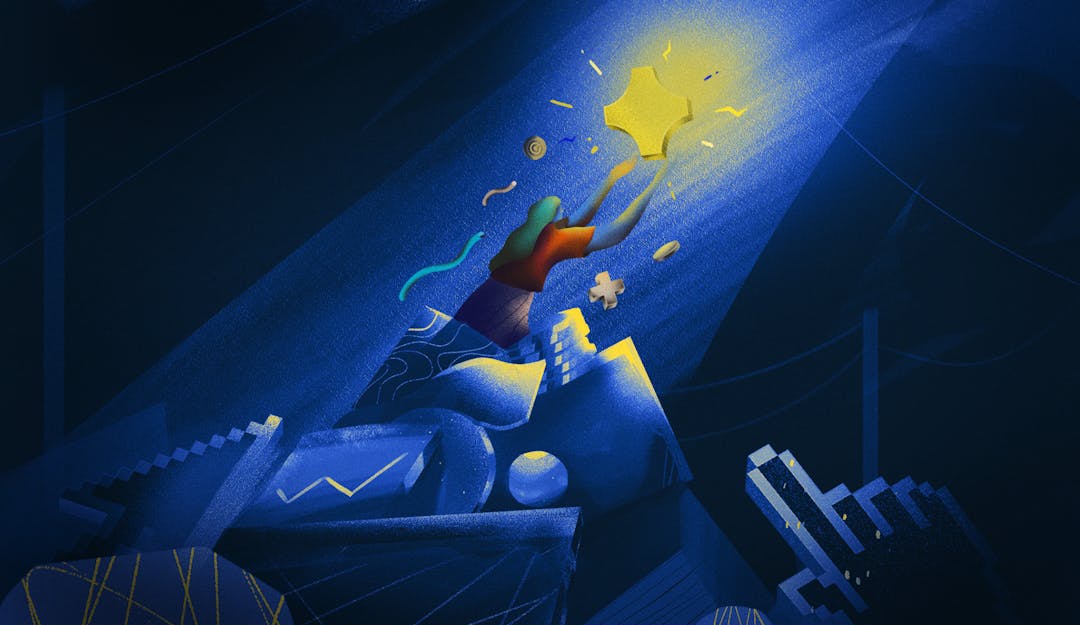SaaS companies know it's essential to give equal attention to prospecting as well as retaining, but what about customers who have cancelled? Should you try to win them back?
Churn is rarely a personal decision. Customers merely want to find the best product fit for them or their business, and while they may decide to drop yours, it doesn't mean that the conclusion is final.
It helps to have a solid strategy for winning back lost customers. A win-back strategy refers to a calculated marketing plan to get churned customers back, retain their business, and help keep overall churn rate low. Churn stifles the growth of your business, and it's expensive on your bottom line because customer acquisition costs more than retention.
Winning back lost customers: when it’s worth it and when it isn’t
Win-back campaigns and strategies can help you reinvigorate your dormant or recover lost customers and improve your customer lifetime value. In addition, it's also critical to improve your customer retention rate because even the best acquisition processes are worthless if you fail to retain customers past the first sale.
Your win-back strategy starting point should be to understand your customer's needs. It's not worth trying to win back lost customers if you can't change the circumstances that led them to churn. Additionally, lost customers respond well to a company that listens to their frustrations, acknowledges their reason for churning, and takes steps to address the issue and improve customer experience.
3 factors to consider to win back the right customers
Once you identify why a customer stopped using your products or service, you can begin mapping out a strategic plan to woo them back. Executing a proper and effective strategy can recapture churned customers' attention and could lead to them re-engaging. The following three factors are proven tactics to help you win back the right customers.
1. Segment customers by reason for churning
Churn analysis helps you uncover clues and reasons why customers stop using your product or service and spot the trend to improve your retention rate. Unfortunately, it's easy for trends from some customers to get masked in the overall analysis as your user base grows.
To avoid this, segment customers with similar characteristics and analyze why those groups churn to prevent similar customers from leaving. Additionally, once you know why customers stop using your products, it's easy to take steps to address the issues before re-engaging and winning them back.
2. Implement customer feedback in product development
Customer feedback is a valuable and vast resource that ensures product innovation aligns with customers' present and future needs. In addition, customer data offers you a complete analysis of your product or service and helps you learn about its strength and weaknesses.
Listening to your customers helps you understand their expectations, and the reasons they stopped using your product or service, so you can improve. It also saves you time and resources otherwise spent on unsatisfactory features or products.
3. Use customer behavior data to design your win-back strategy
Customer behavior data refers to information you produce from commercial behavior using different devices and collection methods such as online tracking, surveys, interviews, focus groups, monitoring social media, and subscription data. It provides insight into how your customers are interacting with your product or service.
Analyzing your customer behavior data helps you understand how and what variables are influencing your audience, so you can identify behavior patterns to design a solid retention and/or win-back strategy.
You could also use an RFM (recency, frequency, monetary) analysis to highlight customer behavior segments and help you determine appropriate win-back strategies to implement by identifying your best customers and those who contribute to your churn rate.
Customer win-back strategies that drive customer retention
After identifying the right customers to win back and why they left in the first place, you can execute your win-back strategy. The aim is to demonstrate your value, restart the customer relationship, and convince them to come back. The following strategies can help you.
Offer pricing tiers to capture different customer segments
A pricing tier strategy refers to when you offer similar products or services but at different (unique) prices to different customers. The strategy increases overall profit and revenue, especially in service industries with high fixed cost structures.
Why does it work?
Imagine a product costs $20. Some customers may find the price too high while others are willing to pay more. Therefore, businesses lose money from customers who refuse to purchase the product or service at $20, and from those willing to pay more. Thus, segmenting the price into different tiers, say $15, $20, and $25, can appeal to both customer sets.
You can segment customers for reasons such as volume, time of purchase, service offering, and location. Additionally, a subscription pricing strategy can help you set price tiers.
Send retargeting campaigns based on reason for churn
Retargeting campaigns allow businesses to target specific leads, visitors to their site, or (in this case) lost customers with specific ads or personalized emails to convince them to convert. Since you've already identified the right customers to win back and their reasons for churning, use the information you gathered to develop an appropriate retargeting campaign. Remind them of your value with information about updates, new features, or new products that suits their needs better.
Build brand authority using social proof on social media
Social proof is an important and effective way to make your business more trustworthy and build consumer confidence around your product or service.
Social proof gives customers powerful emotional triggers and can significantly influence their reaction or response to your brand or specific products. Below are ways you can use social proof on social media to build brand credibility and win back customers:
- Staying on top of your brand reviews, ratings, testimonials, and case studies
- Promote prominent industry associations
- Provide informative, authoritative content
- Leverage brand ambassadors, influencers, and industry expert relationships to boost your products or brand
Keep customers in the loop
Use targeted push notifications, text marketing, and personalized emails to send lost customers new announcements about your product, service, offers, and rewards. Be specific about the content you wish to convey in your message and tailor it to the particular segment of your target customer's base. Establishing communication shows you value your current, lost, and new customers and their business.
Targeted re-engagement offers
Past customers know your brand and products, so they are already interested in what you do or offer. Therefore, sometimes they merely need a nudge to bring them back. So give them the push they need by sending them targeted re-engagement offers and return promotions such as:
- Host a giveaway
- Introduce new features, products, and services
- Offer them a deal
- Sponsor a contest
Prevention is better than cure: How to retain customers in the long run
Your customer retention rate refers to your ability to retain customers over a given period. It spans the entire customer experience from sale to activation. Customer retention helps you improve your ROI, convert more sales, increase customer LTV, spend less on acquisition, and earn more referrals. In addition, tools like churn reduction software can help you retain customers in the long run.
Customer loyalty starts at the point of sale
A customer's loyalty refers to their willingness to repeatedly return to your company to conduct business due to the remarkable and delightful experiences they have with your brand. Customer loyalty starts at the point of sale, and you cultivate and nurture it throughout their lifetime to avoid churn.
Prioritize onboarding new customers to activate them
There is a direct correlation between customer onboarding and retention. Therefore, your customer onboarding is crucial. Ensure you provide a positive experience that exceeds their expectations. Help them learn the ins and outs of your product. Show them what makes your solution valuable, setting it apart from the competition. By doing everything you can to help your customers reach their goals and succeed, you'll be creating some loyal and long-term customers
Track customer behavior and gather feedback by cohort
Cohort analysis refers to a type of behavioral analysis where you group users (customers) based on shared traits to understand and track their actions. It allows you to ask specific, targeted questions to make informed product decisions that help reduce churn and increase revenue. This information is extremely useful when re-engaging lost customers.
Lost customer FAQs
How do I win back a lost customer?
If possible, start with data analysis and/or your customer's feedback. It's crucial to ensure you understand the customer's behavioral patterns, needs, and reasons for leaving. Depending on that information you can determine the best way to reach out—pricing, retargeting campaigns, social proof to build brand credibility, new announcements, or targeted re-engagement offers. It's important to have a proven win-back strategy and campaign to re-engage dormant and/or lost customers.
How do I respond when a customer cancels?
Make the process simple and clear to keep your credibility intact. Treat them with respect and understanding, thank them for their business, and always ask for feedback. Ensure you leave the door open to win that customer back later.
What should I include in my customer off-boarding flow?
A good customer off-boarding flow should include an easy way to express intent to cancel, a quick process to gather information around the cancellation reason.
- Offer the option to pause their subscription or skip a month.
- Utilize salvage offers, such as a discount for a longer-term plan.
- Implement win-back campaigns—offer solutions based on the cancellation cause.
How long should I wait before reconnecting with lost customers?
Reconnect with lost customers as soon as you have new offerings, new valuable information they need, or before a trigger event (say, a press release, product launch, new website design or features, or industry event).
At Paddle, we understand that retention is key to long-term growth. We also know that growing a subscription business is hard, which is why we're here to make it easier for you. ProfitWell Metrics provides you with accurate, real-time subscription reporting, data, and analytics, while Paddle Retain combines world-class subscription expertise with top algorithms that help you leverage millions of data points to retain and win back customers. It's everything you need to grow your subscription business. Get started today.



